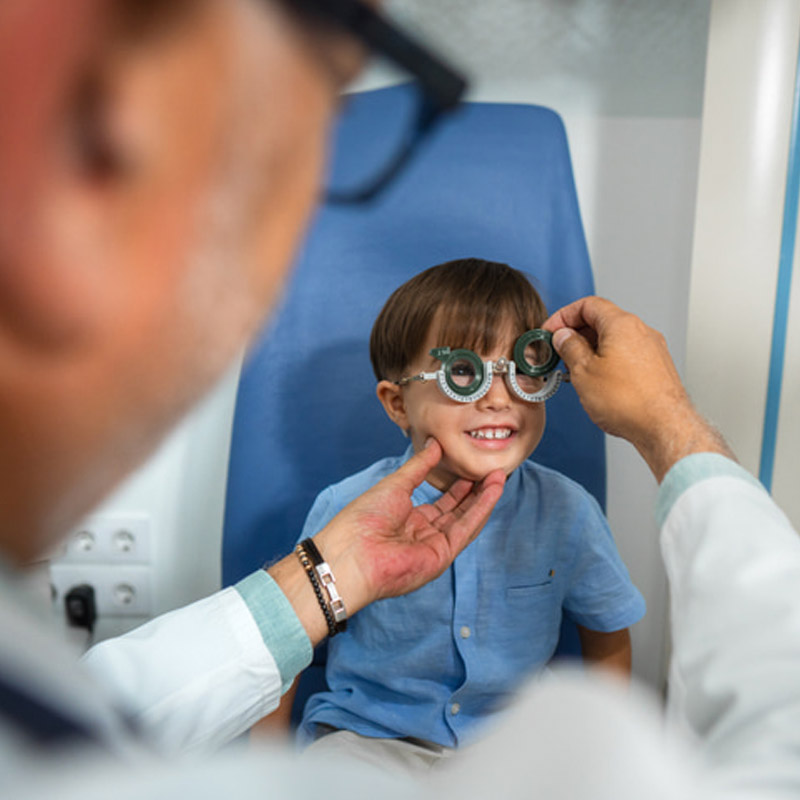Myopia Management Program
Southern New Hampshire
Effective Myopia Management Program in Derry, NH & Surrounding Areas
At Spindel Eye Associates, we specialize in personalized myopia management care in Derry, Londonderry, Raymond, Bedford, and Windham. Myopia, or nearsightedness, is on the rise globally, with projections estimating that half of the world's population will be affected by 2050. This growing prevalence is especially concerning for children, as myopia at a young age can progressively worsen and lead to serious eye health complications later in life. Myopia management programs offer solutions to slow its progression, protecting vision and long-term eye health.
What Is Myopia?
Myopia is a common vision condition where distant objects appear blurry while close objects remain clear. The blurry objects occur due to the elongation of the eyeball or an overly steep curvature of the cornea, which causes light entering the eye to focus in front of the retina instead of directly on it. Typically, the longer the eye, the worse the vision.

Myopia Management Strategies
At Spindel Eye Associates, we employ evidence-based strategies to control myopia progression. Each of these methods is safe and tailored to suit the needs and lifestyle of your child. During routine follow-ups, we monitor the effectiveness of the chosen method and adjust as necessary. Our myopia management strategies include:
Soft Contact Lenses
FDA-approved lenses like MiSight are designed specifically for myopia management. Featuring unique optical technology, these daily disposable lenses help slow eye elongation while providing clear vision.
Atropine Drop Therapy
Low-dose atropine drops, used daily, help slow the axial elongation of the eye. While they don't provide vision correction directly, they are often used alongside prescription glasses or contact lenses.
Why Should I Choose Myopia Management for My Child?
Myopia management is an investment in your child's long-term eye health. Here's why it's a decision worth making:
- Protect Future Eye Health: Slow the progression of myopia to reduce the risk of serious eye diseases, such as glaucoma or retinal detachments.
- Improve Quality of Life: Ensure your child can fully participate in academic, social, and recreational activities without limitations due to poor vision.
- Lower Prescription Dependency: Minimize the need for constant upgrades to stronger prescriptions.
- Expand Future Options: With lower myopia progression, your child will likely be eligible for vision correction procedures like LASIK in adulthood.
How Does Myopia Management Work?
Myopia management works by addressing factors that cause the acceleration of nearsightedness. By influencing how light focuses on the retina and reducing the stimuli for eye elongation, these treatments can significantly decelerate the condition's progression. We will determine the current level of myopia, assess your child's risk factors, and recommend a treatment plan based on your child's needs.
Why Choose Spindel Eye Associates?
Spindel Eye Associates combines expertise, advanced technology, and compassion to provide the best care for your child. Our board-certified optometrists and ophthalmologists stay updated on the latest advancements in myopia management research and technology. From FDA-approved treatments like MiSight lenses to innovative Ortho-K solutions, we use proven strategies to achieve the best outcomes. With over 35 years of experience serving Southern New Hampshire families, we are committed to improving the lives of our patients. Contact us today to schedule an appointment.
We serve Derry, Londonderry, Windham, Raymond, and Bedford
